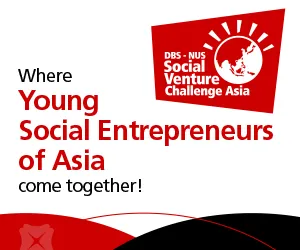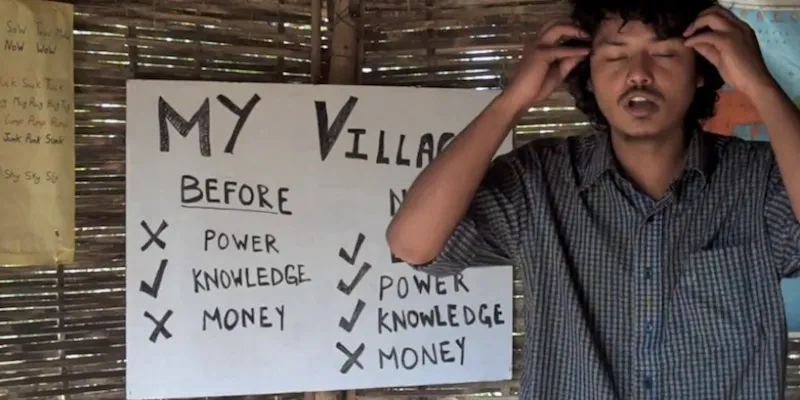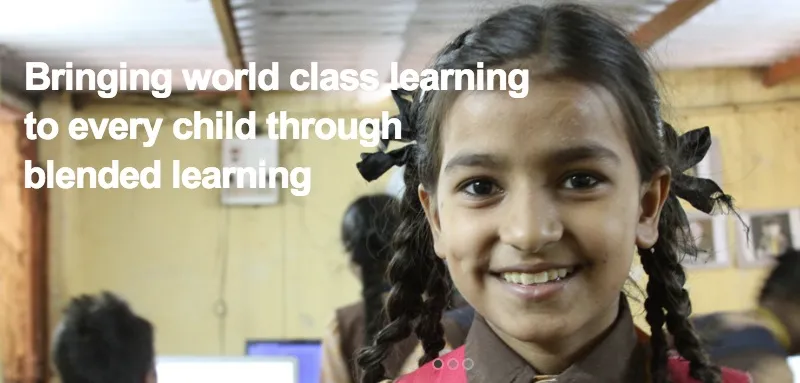Brün, Maya Universe Academy and Zaya Learning are DBS-NUS-Social Venture Challenge semi-finalists

This article is part of Young Entrepreneurs of the DBS-NUS Social Venture Challenge Series
DBS-NUS Social Venture Challenge Asia, a pan Asia competition for social enterprises aimed at identifying and supporting new social ventures that have the potential to generate scalable and sustainable social impact, announced its 12 shortlisted social ventures from over 400 applications received.
Three social ventures that made it to the semifinals are Brün, Maya Universe Academy and Zaya Learning. Brün is aimed at development of innovative biomedical devices to address the unmet clinical needs of India, Maya Universe Academy is a non-profit, community supported primary school in Nepal that provides quality education free of cost to rural children and Zaya Learning, a social enterprise from India, aims to transform low-income, underperforming classrooms across India into high-performing learning spaces through a holistic solution that combines technology, training, and pedagogy. Here’s more about these social ventures:
Brün
The vision of Brün is to ensure that every single pregnancy is monitored. The global rates of fetal and maternal morbidities has not stabilised for years and in India alone roughly 330,000 still-births are occurring each year. There is an acute shortage of manpower and resources and access to easy to use and affordable technologies is the need of the hour.
Brün is a product developed under the Stanford-India Biodesign program, which is a Department of Biotechnology (DBT), Government of India supported collaborative program between All India Institute of Medical Sciences (AIIMS), Indian Institute of Technology, Delhi (IIT-D) and Stanford University, USA in partnership with Indo-US Science and technology forum. The DBT has authorized Biotech Consortium India Limited (BCIL) to manage techno-legal activities of this program. It is aimed at development of innovative biomedical devices to address the unmet clinical needs of India. It has been designed after 8 months of rigorous user centric need evaluations and design optimisations by a team of SIB 2013 fellows, Anirudh Chaturvedi, Balaji Teegala and Dr. Prashant Jha. This is an engineer-designer-physician trio that aims to revolutionise the way healthcare is delivered in India.
Through the AIIMS and its extensive network of primary and community health centers and subcenters, the team has validated some of the core issues plaguing the OB/Gyn specialists, nurses and ASHA workers. The team also gathered extensive feedback from physicians and nurses across India who have recognised the need for access to reliable technologies. Private practitioners and large multispeciality healthcare chains have also recognised the need for optimisation in their labor management strategies.
Brün captures the fetal heart rate, maternal uterine contractions, cervical dilation, maternal non-invasive blood pressure and heart rate using a novel set of sensors in a form which an ASHA worker can use and provides for an easy interpretation of all the data that is captured. It monitors the mother and child in both resource constrained and resource replete environments by reducing the burden on the healthcare staff while keeping a robust check on the mother and fetus for any signs of distress. It improves sensitivity and selectivity of detection of physiological parameters while keeping costs manageable so that everyone from the poorest to the richest people can have access to clinically proven best practices in labour management.
The mission is to ensure “smarter labour rooms and safer deliveries” across India and the rest of the world. Brün aims to democratise good quality and effective healthcare by ensuring that the best technologies reach the bottom of the healthcare pyramid. Anirudh Chaturvedi of Brün says, “We feel elated and honoured to be part of DBS-NUS Social Venture Challenge where like minded people are getting a chance to exchange their experiences and stories. It has been an inspiring journey so far and we certainly hope to learn a lot more from this opportunity. We’re looking to get the required traction and support from the evangelists of this program and make the impact that we have dreamed of.”
Maya Universe Academy
Maya Universe Academy is a non-profit, community supported primary school in Nepal that provides quality education free of cost to rural children. Founded in 2011 by Manjil Rana, Maya Universe is the first and only free private school in Nepal. Their innovative funding method allows the parents of the students to work at the school for two days of every month instead of paying fee to the school. Despite being only three years old, Maya’s model has got quite popular in rural Nepal and many villages have approached them for their help in setting up similar initiatives.

In 2011, 90% of private school students were admitted to a secondary educational institution compared to 46% of public school students. Nepal, with a 60% literacy rate, has a high demand for affordable and accessible educational institutions. Manjil shares that private schools in Nepal have done a better job at providing high quality education. They have been doing a far better job than donor-supported government institutions. However, they do not set up their schools in rural Nepal where people do not have any money to buy their services. Maya Universe allows the poor to pay with their time.
Looking into the future, Manjil says they could be selling other services too with the same business model. For example, providing health insurance for two more days of work, providing a lunch program for another day of work etc. Manjil says, “The people in rural areas are poor because we count how much cash they have at hand. They do not have much money but that does not mean that they have nothing to give back. We believe that budding social entrepreneurs can replicate and adapt our model to other developing countries in the world.” Maya Universe Academy is one of the 12 semifinalists at the DBS-NUS Social Venture Challenge and Manjil feels great on being shortlisted.
Zaya Learning
Zaya’s mission is to transform low-income, underperforming classrooms across India into high-performing learning spaces through a holistic solution that combines technology, training, and pedagogy. Their product, the ClassCloud, brings high-quality instructional videos, lesson plans, and digital assessments to underserved areas, even in places without internet connectivity, and collects a wealth of data on student performance to closely measure outcomes. With a core belief that technology is a tool to empower and not replace the teacher, Zaya’s training programs focus on improving teachers’ confidence and in helping them to create a more engaging learning environment. Zaya’s pedagogy, called blended learning, mixes traditional, one-to-many instruction with small group, peer-to-peer learning and individual, self-paced learning to deliver a more customized, personalized learning experience to each child.

Founded by Neil Dsouza in May 2013, Zaya drives impact in two primary ways. First, Zaya’s teacher training programs and personalized, interactive pedagogy creates higher levels of teacher and student engagement and interest in teaching and learning. Second, Zaya provides the newly engaged teachers and students with a set of tools to significantly improve the quality of education. In the short-to-medium term, Zaya hopes to improve students’ ability and confidence in English and Math and also improve the teacher’s confidence. Over the long term, they hope to boost completion rates for primary and secondary education and create better educated, more skilled, and more employable graduates. For them, success is substantially narrowing the achievement gap for children at the bottom of the pyramid.
Zaya has a passionate and diverse team, bringing experience across education, technology, and business from companies like Teach for India, Cisco, Yahoo, Citibank, and BCG. Speaking about the DBS-NUS Social Venture Challenge, Ryan Rodrigues, Director Business Development at Zaya, says, “While today we work in Mumbai, our aspiration is to bring our solution to low-income schools across all of Asia. The DBS-NUS network will be a great asset in doing this. It was a great feeling to be shortlisted as a semifinalist and that DBS-NUS saw the potential for impact in our idea. The event provided us with a set of business tools, from finance to marketing to business modeling, that will be very useful as we develop, grow, and scale Zaya. Moreover, meeting the other semifinalists in person, learning more about their enterprises, and seeing the shared passion for driving change was really inspiring.”







